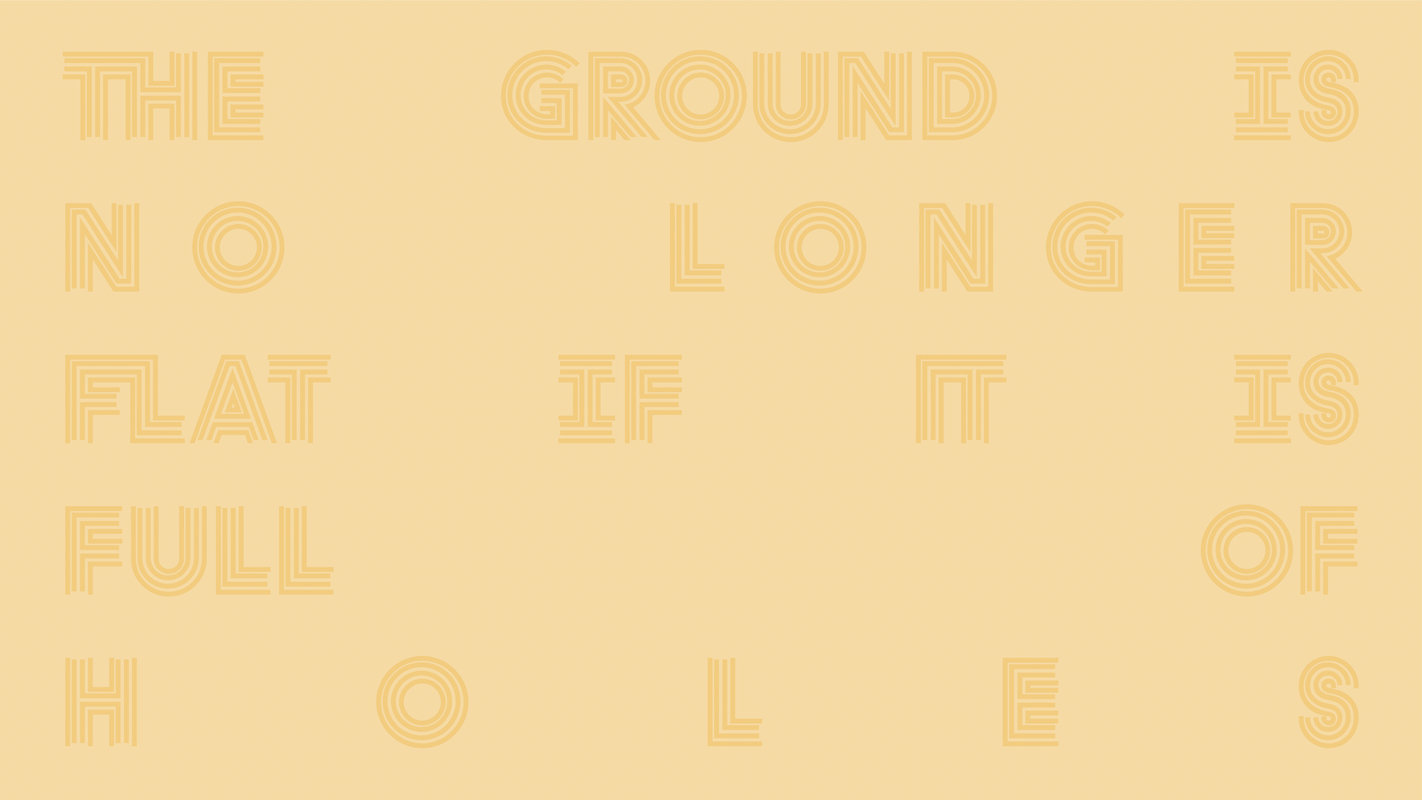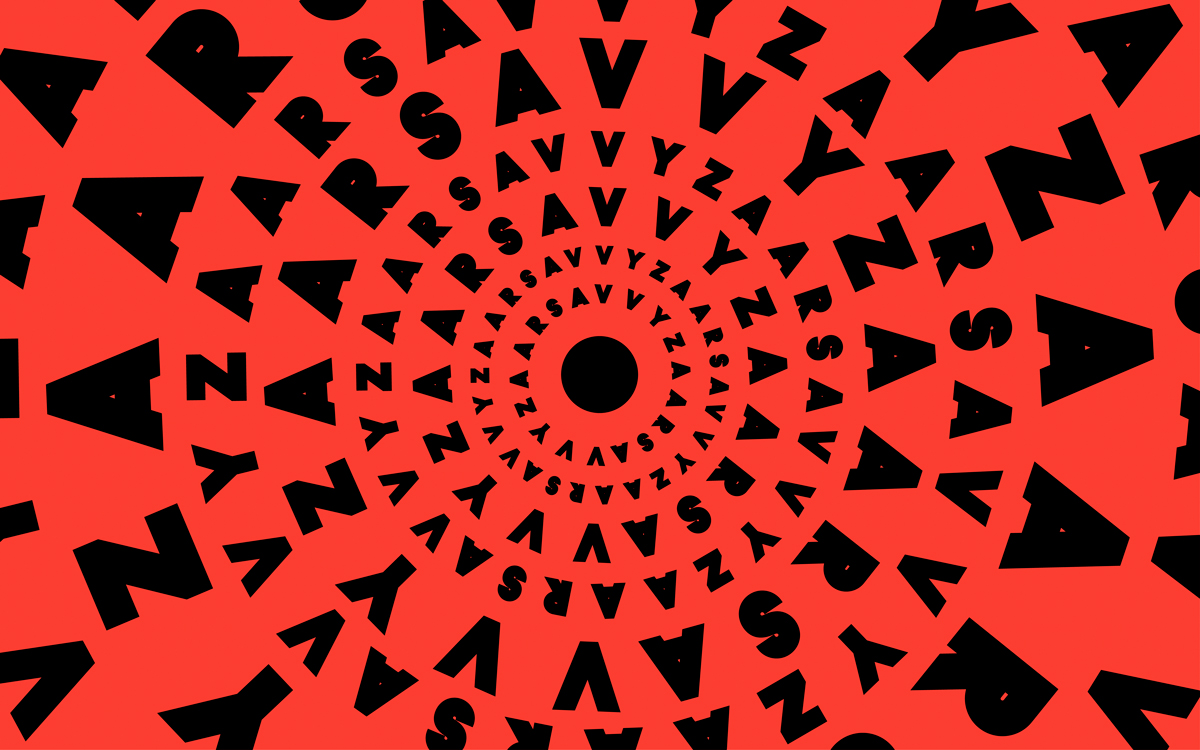THE GROUND IS NO LONGER FLAT IF IT IS FULL OF HOLES

Conversations Sundays in October 18:00
SAVVYZΛΛR Online streaming and on Berlin 88.4 FM & Potsdam 90.7 FM
PRogramme
11.10.2020 18:00
WITH Siraj Izhar, Arlette-Louise Ndakoze and Antonia Alampi
18.10.2020 18:00
WITH Bonaventure Soh Bejeng Ndikung, Arlette Louise-Ndakoze and Elena Agudio in conversation with Kamila Metwaly, introduction by Lynhan Balatbat-Helbock
25.10.2020 18:00
With Beatrice Gakuba, Bouba Touré and Arlette-Louise Ndakoze
In this radio series in three parts, SAVVYZΛΛR visits our current exhibition RAUPENIMMERSATTISM, and further problematizes THE AFFLUENT SOCIETY AS CONSUMED SOCIETY OR THE MYTH OF ENDLESS PRODUCTION AND CONSUMPTION as found in most capitalist societies today around the world. We ask, what happened to the dreams dreamt by the architects of neoliberal economy? What happened to the dreams dreamt by the believers and disciples of free economy and the social state? Together with activists and artists, we look for answers in the holes that constitute our economical, legal, and social realms today. In this attempt, we try to find a common ground that can no longer be flat and can no longer live off of the myth of a solid, unified whole ground, if this whole ground is not addressing the exploitative and unequal lived experiences by the most vulnerable communities among us. Drawing from Bonaventure Soh Bejeng Ndikung’s concept for the exhibition project, we posit: "what does that mean for the citizens and how does this trickle down to the people whose social conditions have kept them under the poverty belt, but who have constantly been sold the idea that with increased production and consumption they might be able to free themselves from that status"?
11.10.2020 18:00 THE GROUND IS NO LONGER FLAT IF IT IS FULL OF HOLES
WITH Siraj Izhar, Arlette-Louise Ndakoze and Antonia Alampi
In the first episode, we visit the London based activist and artist Siraj Izhar, and together with Arlette-Louise Ndakoze and Antonia Alampi, we look into the very challenging times we are living in. We question how nation states have failed to protect the most vulnerable communities among us in the time of a pandemic, and specifically discuss the relationship between “labourer” and “worker” conditions, and the restrictions imposed on migrant and marginalized communities specifically in the context of England. Izhar brings us to question how the whole economical system is rupturing and how the formal economy creates an informal economy, which is thriving off of exploitation, and how certain divisions and structures have been inherited from colonialism and adapted in capitalism. Glimpsing on what the author refers to as “grey zones”, found within a consumerist society, we look at the implications of exploitive labor conditions, as illuminated by the COVID-19 crisis, which are affecting mostly the working class migrant and ethnic minorities communities, with little to nothing access to security or economic stability.
MUSIC “Kyenkyen Bi Adi Mawu” by K. Frimpong and His Cubano Fiestas, “Walk 4 Ground” by Blay Ambolley, and “Hail the King” by Wali & The Afro Caravan
18.10.2020 18:00 THE FUNGI TOO IS FIGHTING CAPITALIST SYSTEMS
With Bonaventure Soh Bejeng Ndikung, Arlette Louise-Ndakoze and Elena Agudio in conversation with Kamila Metwaly, introduction by Lynhan Balatbat-Helbock
In this week's episode, we visit the team behind the making of RAUPENIMMERSATTISM to further problematize THE AFFLUENT SOCIETY AS CONSUMED SOCIETY OR THE MYTH OF ENDLESS PRODUCTION AND CONSUMPTION. Kamila Metwaly sat, for the first time in the radio studio newly set up at SAVVY Contemporary, together with Bonaventure Soh Bejeng Ndikung, Arlette Louise-Ndakoze and Elena Agudio to contemplate the realities and symbolisms of sacrifice: with a primary guiding metaphor, of the fungi. Functioning through organic detoxification processes in their underground, unseen networks, fungi hold roots deep below the surface – fertilizing the soil of the land in order for its use to remain fruitful. The service and work of fungi help us to reflect on the labors of human beings in our capitalist structures who labor invisibly, breeding food and various cultivations for the masses, to sustain life as we know it. We aim at understanding how capitalism is a continuum of a network that thrives off of division, segregation and alterity of those who are deemed a sacrifice in a capitalist society. The conversation revolves around capitalism and its historical offshoots, and the structure of a system we are collectively entangled within. We zoom into Germany as a European microcosm that through history has adapted methods of exploitation that stem beyond capital, as it exists today. A new suit worn by the same history. We stretch the conversation into the colonial legacies of those who managed to create a social system of capital on the grounds of going out to colonize the world, based on violent chronicles that since have been devised and inherited. Can the time of capitalism be contested by the act of non-doing? When does the time imposed by the industry and the need to produce end, and the time of relationality of beings begin?
MUSIC "Campesino" by Atahualpa Yupanqui, “Lampedusa” by Toumani Diabaté, Sidiki Diabaté, and "The Retreat Song" by Miriam Makeba
25.10.2020 18:00 We need to change otherwise the change will change us
With Beatrice Gakuba, Bouba Touré and Arlette-Louise Ndakoze
In our conversation, we will focus on one of the professions that have always been under great threat across times and geographies, a type of work and labour that is so fundamental it turns invisible – one that stays exploited, un-recognized, unprotected, uncelebrated, threatened and rendered more vulnerable than it is by society’s indifference: seasonal labour which migrants are forced to and put into, in the agro-business in particular, and within the entanglement of economies that make it possible. Bouba Touré and Beatrice Gakuba share their experience on the African continent, the consequence of colonial rule. Mostly, we talk about how Beatrice Gakuba's and Bouba Touré's initiatives have been contributing to an independency in agriculture by restructuring the sector according to the needs and traditions of African societies. A focus lays herin on the importance of women – mothers, sisters, aunts – for the economy of a society, as they have been and will remain to be the caretakers of their communities.
Artistic Direction Bonaventure Soh Bejeng Ndikung
Core Radio Team Arlette-Louise Ndakoze, Kamila Metwaly, Kelly Krugman
Management Lema Sikod, Lili Somogyi, Jörg-Peter Schulze
Communication Anna Jäger
Design Juan Pablo García Sossa

